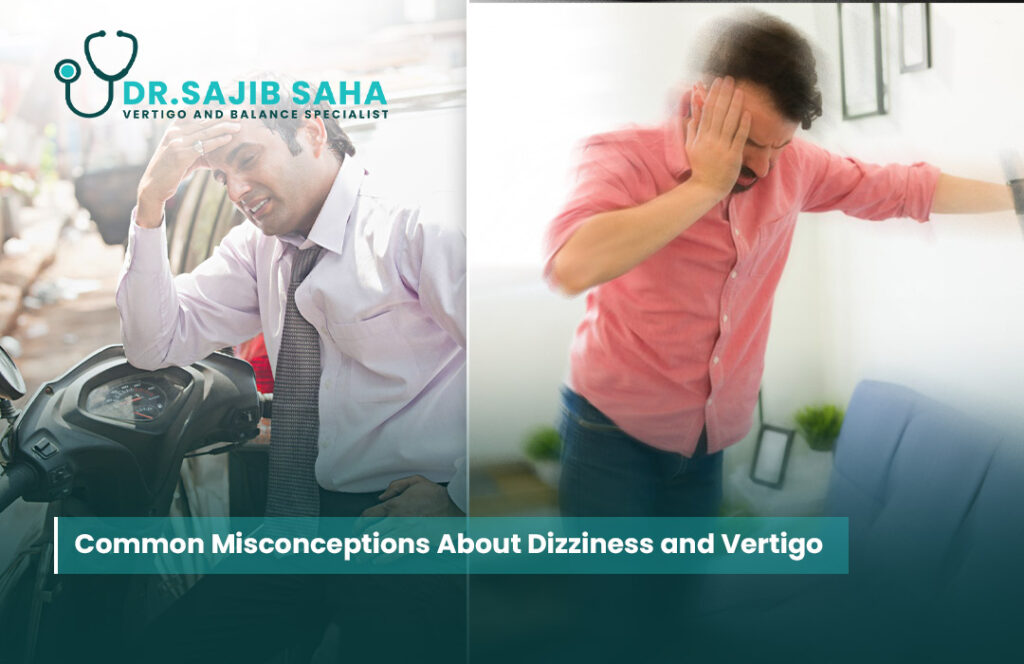Dizziness and vertigo are among the most common reasons patients visit an ENT or neurologist. Unfortunately, many people misunderstand these conditions, which often leads to delayed diagnosis and improper treatment. To help patients make informed decisions, this blog addresses the common misconceptions about dizziness and vertigo and shares the correct facts.
Misconception 1: Dizziness and Vertigo Are the Same
The Truth:
-
Dizziness is a general term for feeling lightheaded, unsteady, or faint.
-
Vertigo specifically means a spinning sensation, where you feel like the room is moving.
👉 Understanding the difference is important for proper treatment.
Misconception 2: Vertigo Is Only Caused by Ear Problems
The Truth:
-
While inner ear disorders (like BPPV or Meniere’s disease) are common causes, vertigo may also result from:
-
Neck (cervical) spine issues
-
Low blood pressure
-
Neurological conditions
-
Medications
👉 Not all vertigo cases are ear-related, so a specialist’s evaluation is essential.
-
Misconception 3: Vertigo Means a Brain Tumor
The Truth:
-
Many patients fear the worst, but brain tumors are a rare cause of vertigo.
-
Most cases are due to treatable inner ear or balance disorders.
👉 Consult a doctor for proper tests instead of assuming the worst.
Misconception 4: Vertigo Will Go Away on Its Own
The Truth:
-
Some mild dizziness may improve with rest, but chronic vertigo often needs treatment.
-
Without medical care, symptoms may worsen and increase the risk of falls.
👉 Early treatment ensures faster recovery and better quality of life.
Misconception 5: Only Older People Get Vertigo
The Truth:
-
Vertigo can affect people of all ages, including children and young adults.
-
Lifestyle factors, ear infections, stress, and posture issues can trigger vertigo in younger patients as well.
Misconception 6: Medicines Are the Only Solution
The Truth:
-
While medicines can help, treatment may also include:
-
Vestibular rehabilitation therapy (VRT)
-
Balance exercises
-
Diet and lifestyle modifications
-
-
A holistic approach often gives better results than just medication.
When to See a Specialist
If dizziness or vertigo interferes with your daily life, consult an expert. Dr. Sajib Saha, a vertigo and balance disorder specialist in Dhaka, can identify the exact cause and recommend effective treatment tailored to your condition.
Conclusion
Dizziness and vertigo are often misunderstood, leading to myths that prevent patients from seeking timely treatment. By knowing the truth, you can make better health decisions and improve your recovery journey.
👉 Don’t let misconceptions affect your health—consult Dr. Sajib Saha for accurate diagnosis and safe, effective treatment.
